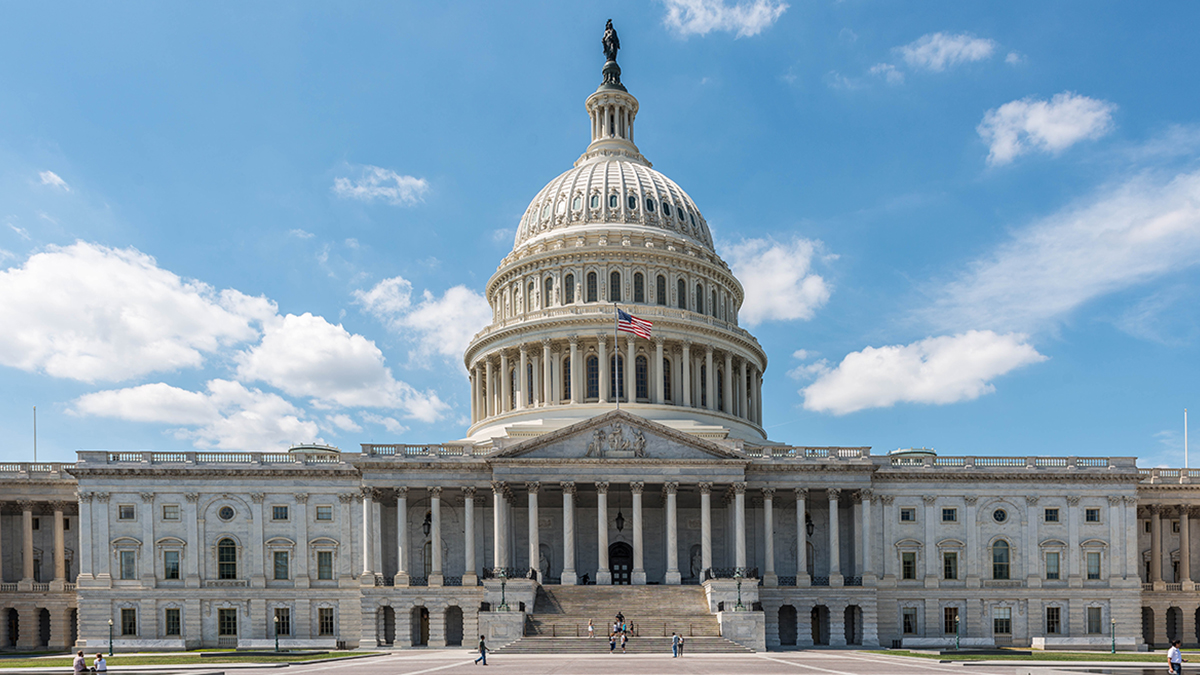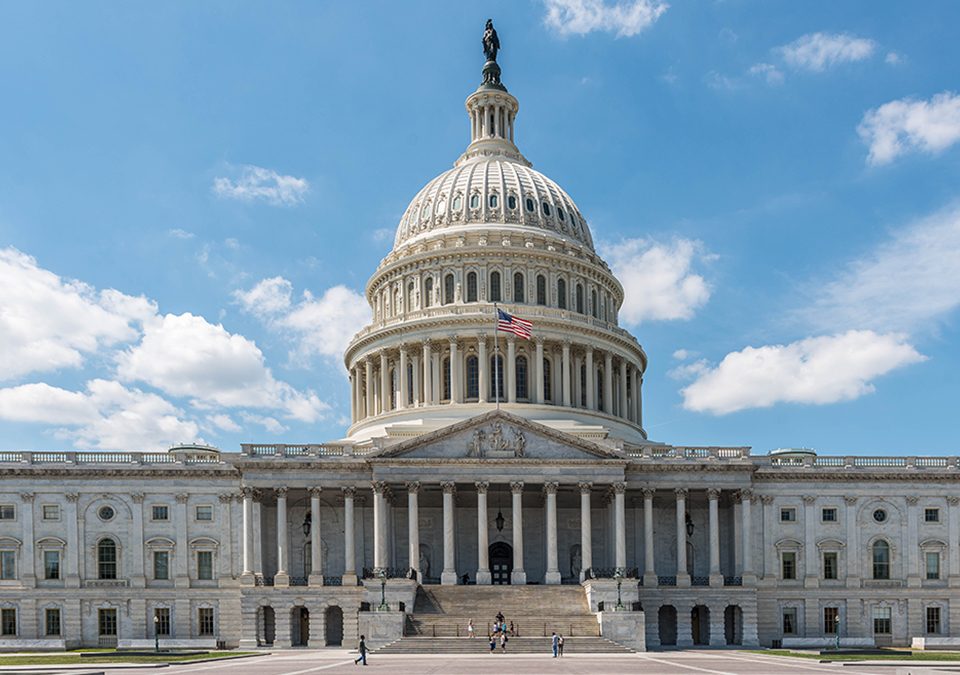White House/Executive Agencies
Despite typically being a sleepy month that sees both Congressional chambers in recess, August was stunningly frantic in the Nation’s capital this year. With the first half of the month spent awaiting the Senate’s negotiation and passage of the long-touted, bipartisan infrastructure bill, focus quickly shifted to Democrats’ pie-in-the-sky, $3.5 trillion reconciliation effort.
With Democratic majorities on Committees now racing to draft language ahead of a September 15th deadline imposed by Congressional Leadership, questions linger over the leanings of 10 or so moderate Democrats that have expressed various reservations over the package’s provisions.
To complicate matters further, the disaster in Afghanistan and landfall of Hurricane Ida are stretching Congressional staff to the limit during what is a critical phase of legislative work. On top of it all, government funding runs dry come October, setting up yet another fiscal cliff for Congress to work around.
Budget Reconciliation Update
Oil and Gas provisions released by Natural Resources Committee
Last week, Democratic Members of the House Natural Resources Committee released base text for the Committee’s share of the coming $3.5 trillion reconciliation bill. The Committee will mark-up the text on September 2nd, and Democratic Leadership has given each Committee until September 15th to finalize its portion of the bill text.
IADC has issued a letter to the Committee indicating its firm opposition to the text’s inclusion of provisions targeting the U.S. oil and gas industry, and is in the process of issuing letters to Members of the Texas Congressional Delegation, urging them to vote NO on a final package that includes such provisions.
Oil & Gas-Related Provisions in Biden’s Infrastructure Bill (so far):
- Ban leasing in ANWR
- Ban leasing in certain areas: eastern Gulf of Mexico, Pacifica Planning Area, & Atlantic Planning Area
- Onshore Royalty Increases: to 20%
- Offshore Royalty Increases: to 20%
- Oil and Gas Minimum Bid: From $2/acre to $10/acre, inflation adjusted every 4 years.
- Oil and Gas Bonding Requirement: $150,000 minimum “adequate” bond for individual surface-disturbance and $500,000 minimum for all surface-disturbance.
- Fossil Fuel Rental Rates: To $100/acre, inflation adjusted every 4 years.
- Fossil Fuel Lease Term Lengths: Cuts lease terms in half.
- Elimination of Noncompetitive Leasing: Would allow lands for which no bid is accepted to be made available by the Secretary for a new round of sealed bidding.
- Per Acre Lease Fees: $4/acre on new producing federal onshore and offshore, $6/acre speculative fee on new nonproducing federal onshore and offshore.
- Onshore Oil and Gas Inspection Fees: $800 per lease/unit with surface use but no wells, $1,400 per lease/unit with 1-10 wells, $5,600 per lease/unit with 11-50 wells, $11,300 per lease/unit with 50+ wells. Due within 30 days of assessment. Tribal operators are all exempted.
- Offshore Oil and Gas Inspection Fees: $11,725 for facilities with no wells, but with processing equipment or gathering lines, $18,984 for facilities with 1-10 wells, $35,176 for facilities with 10+ wells.
- Inspection Fees for Drilling Rigs: Operators of offshore drilling rigs must pay; $34,059 per inspection of rigs operating in 500+ feet of water, $18,649 per inspection of rigs operating in less than 500 feet of water.
- Inspection Fees for Non-Rig Units: $13,260 per inspection for non-rig units operating in 2,500+ feet of water, $11,530 per inspection for non-rig units operating in water between 400 and 2,499 feet, $4,470 per inspection for non-rig units operating in less than 500 feet of water.
- New Carbon Pollution Fee
- Idled Well Fees: $500 for each well that has been considered an idled well for at least 1 year, but not more than 5 years; $1,500 for each well that has been considered an idled well for at least 5 years, but not more than 10 years; $3,500 for each well that has been considered an idled well for at least 10 years, but not more than 15 years; $7,500 for each well that has been considered an idled well for at least 15 years.
- Royalties on All Extracted Methane: Royalties shall be assessed on all gas produced, including gas used or consumed within the area of the lease tract for the benefit of the lease, and all gas that is consumed or lost by venting, flaring, or fugitive releases through any equipment during upstream operations.
- Elimination of Royalty Relief: Repeals royalty relieg under Sec. 344, 345 of Energy Policy Act of 2005. Sec. 8 of OCSLA, Sec. 107 of NPRPA, and Sec. 39 of MLA.
- Penalties: Plethora of changes that double/triple most related penalties.
- Technical Amendments to Collections
In Other News
U.S. Treasury Halts Most Fossil Fuel Finance by Development Banks
The Treasury Department issued newguidelines this Monday for votingrepresentatives at the multilateraldevelopment banks that would blockoverseas financing for most coal andoil projects while leaving a “narrow”path for backing natural gas. Thedirectives would choke U.S.government support for a wide swathof fossil fuel endeavors throughinstitutions such as the World Bank andInter-American Development Bank,where it is the largest shareholder.Treasury said it would instruct U.S.members of those institutions tooppose financing for all overseasnatural gas exploration and productionactivities, for new coal-based projectsand for most oil-based energy projects.
Biden to Restart Oil Sales While Appealing June Court Order
The Biden administration is appealing a federal judge’s ruling against its oil leasing moratorium, while promising to resume offering new oil and gas leases on U.S. lands and waters. The agency said it would continue onshore and offshore oil and gas leasing as required by U.S. District Judge Terry Doughty in June, while it challenges the decision before the 5th Circuit. The announcement comes ahead of a court deadline for the administration to explain how it was complying with the judge’s June 15 order that leasing should resume. The Interior Department has not yet issued public plans for new or rescheduled lease sales, amid mounting pressure from Congress and the oil industry.





